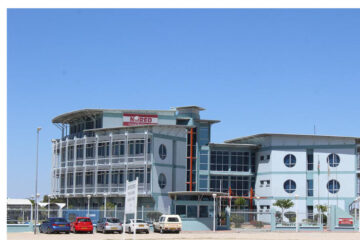Erasmus Shalihaxwe
Namibian women journalists are disproportionately targeted by online attacks, particularly during politically charged periods such as the recently concluded Presidential and National Assembly elections, according to Namibia Media Trust director, Zoe Titus
Speaking during a panel discussion on Thursday titled “Safety Online for Journalists During Elections,” Titus highlighted the prevalence of cyberattacks aimed at female journalists, with many of these attacks being defamatory in nature.
She noted the inadequacies in Namibia’s cyber laws, which currently do not provide clear protections against such attacks.
“There are a lot of attacks directed at journalists every day, and I consider some of these attacks defamatory. But what I have also picked up is that most of these attacks are directed at female journalists, so women in journalism are vulnerable to online attacks. Namibia does not have a clear law on how to deal with hate speech, and this needs to be addressed as a matter of agency,” remarked Titus.
She added that most of the challenges journalists faced during the 2024 elections was a lack of communication between the Electoral Commission of Namibia and the government.
Ministry of Information and Communication Technology Director for Print Media Affairs Frans Nghitila addressed the issue of cyberbullying and the government’s ongoing efforts to update outdated laws.
Nghitila said that although new legislation, such as the cybercrime bill, is being introduced to tackle these issues, the process is time-consuming as it requires extensive consultation.
“Introducing new laws takes time as they have to go through various stakeholders for their inputs before they are approved. But one thing I can point out is that when the cybercrime bill was introduced, it was journalists who were complaining that the government wanted to spy on them. But it is a wrong perception, the government is not interested in spying on you colleagues, we are looking at the bigger picture of protecting the country from cyber-attacks, we are not interested in looking at what is contained in your phones,” saidNghitila.
He added people should first acquaint themselves with government programs in depth before making their own conclusions because even when the SIM card registration program was introduced there was a lot of condemnation towards the government while Namibia was part of the few countries that did not introduce the SIM card registration at times across the world.
Catherine Anite, a project coordinator for Uproar in Uganda, expressed concerns about Namibia’s declining media freedom.
She urged Namibian journalists to safeguard their hard-won freedoms, which have historically set an example for other African nations.
“Sometimes I used to have wishful thinking that one day we will have the same freedom of expression for the media here in Uganda, so you guys should not let it come to the level where we are here in Uganda,” said Anite.




